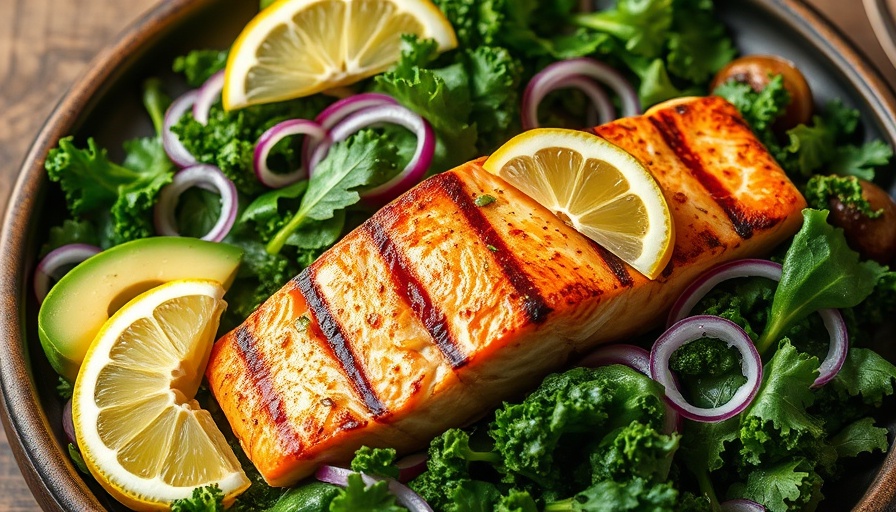
Saffron: The Spice That Packs a Nutritional Punch
Saffron, the world’s most expensive spice, is not just a culinary delight but a powerful ally in maintaining our health as we age. Recent discussions in Nutrition Facts Podcast reveal the profound impact saffron can have not only on eye health but also on various other aspects of well-being, challenging us to reconsider its role in our diets.
In 'Podcast: Wake Up and Smell the Saffron', the discussion dives into the fascinating nutritional insights of saffron, prompting a deeper analysis of its health implications.
Understanding Age-Related Macular Degeneration and Saffron's Role
Age-related macular degeneration (AMD) is a growing concern, especially for older adults. The retinal pigment epithelium layer, vital for visual acuity, tends to diminish with age. A groundbreaking intervention trial featured in the podcast highlighted that a mere 20 mg of saffron daily could lead to significant improvements in retinal function. Surprisingly, subjects reported enhanced visual acuity—an encouraging statistic for those battling AMD.
The Blueberry-Benefit Connection
While saffron shines in the spotlight, let’s not forget about the humble blueberry. These fruits, loaded with anthocyanins, appear to mitigate cellular aging and are a tasty method to preserve eye health. The combination of blueberries along with saffron could unleash a comprehensive strategy against age-related ailments.
Saffron's Surprising Effects on Mental Well-Being
Remarkably, saffron's benefits go beyond vision. The spice shows promise in treating symptoms of depression, hinting at its potential antidepressant effect. A meta-analysis revealed saffron's efficacy comparable to conventional antidepressants. Therefore, those feeling glum may find solace in infusing saffron into their diets.
Are Traditional Remedies Getting A Bad Rap?
Modern medicine sometimes overlooks ancient wisdom. Saffron, used for thousands of years in traditional medicine, is now being critically analyzed under scientific scrutiny, revealing its multi-faceted health benefits. It's a case worth pondering: does modern science finally affirm what ancient cultures have long revered?
If You’re Concerned About Edging Into Ageing, Consider Saffron
One notable focus of the podcast is saffron’s role in addressing erectile dysfunction. In studies, saffron demonstrated improvements in sexual function, suggesting that natural alternatives could offer a viable path for those wary of conventional medications.
Spotlight on PMS: Saffron's Repair Mechanism
Women dealing with PMS know the struggle all too well, and saffron appears to be a game-changer. By alleviating physical and emotional symptoms associated with PMS, saffron could redefine how we approach menstrual health. Its ability to reduce mood swings and irritability reshapes conversations surrounding menstrual discomfort.
Practical Value: Incorporating Saffron into Your Diet
With the affordable 20 mg dose costing about 15 cents a day, saffron presents a cost-effective way to potentially improve various health conditions. Incorporating saffron into meals, teas, or smoothies could enhance not just flavor but also nutritional value—aiming for preventive health and overall well-being.
Final Thoughts: A Call to Embrace Nutritional Power
The insights shared in the Nutrition Facts Podcast invite us to rethink health through a culinary lens. As we explore the rich history and burgeoning science of saffron, we should consider making room for this ancient spice in our modern lives. The potential benefits—ranging from eye health to mood improvement—form a compelling case for adding saffron to our diets.
It's time to wake up and smell the saffron! To dive deeper into these insights, consider checking out more episodes of the Nutrition Facts Podcast and explore how dietary improvements can lead to healthier lives.
 Add Row
Add Row  Add
Add 







Write A Comment